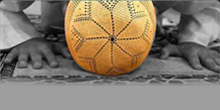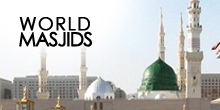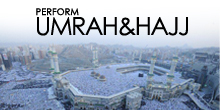The First Ten Days of Zul-Hijjah By Shaykh Muhammad Saleem Dhorat
Posted in Uncategorized
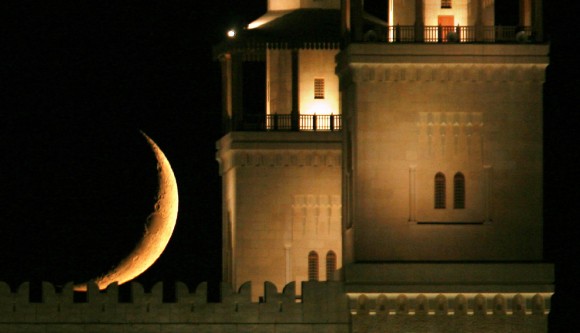
Significance of the First Ten Days of Zul Hijjah
1. Allah has taken oath of ten nights in Soorah Al-Fajr. According to the majority of the commentators of Qur’ãn, the nights are those of the (first) ten days of Zul Hijjah.
2. Abdullah Ibne ‘Abbãs radiyallahu anhu related that the Prophet sallalahu alayhi wasallam said, “Good deeds performed on other days are not superior to those performed on these (first ten days of Zul Hijjah).” The Companions radiyallahu anhum inquired, “Not even Jihãd?” He replied, “Not even jihãd, except for that person who goes out putting himself and his wealth in danger and does not return with anything.” (Bukhãri)
3. Abdullah Ibne ‘Abbãs radiyallahu anhu narrated that Rasoolullah sallalahu alayhi wasallam said, “On no other days are good deeds more liked by Allah than on these ten days (i.e. The first ten days of Zul Hijjah).” The Sahãbah radiyallahu anhum asked, ” O Rasoolullah ! Not even Jihãd in the Way of Allah?” Rasoolullah sallalahu alayhi wasallam replied, “Not even Jihãd in the Way of Allah, except for that person who goes out with his life and wealth and does not return with anything.” (Aboo Dãwood, Tirmizi, Ibne Mãjah)
4. Aboo Hurayrah radiyallahu anhu related that Rasoolullah sallalahu alayhi wasallam said, “On no days is the worship of Allah desired more than in the (first) ten days of Zul Hijjah. The fast of each of these days is equal to the fast of a whole year, and the worship of each of these nights is equal to the worship of Laylatul Qadr.” (Tirmizi, Ibne Mãjah)
5. The mother of the believers, Hafsah radiyallahu anhaa reports that Rasoolullah sallalahu alayhi wasallam used to fast the (first) nine days of Zul Hijjah. (Nasã’ee, Ahmad, Aboo Dãwood)
6. Abdullah Ibne ‘Umar radiyallahu anhu related that Rasoolullah sallalahu alayhi wasallam said, “No days are as weighty with Allah and so liked by Him for good deeds than the first ten days of Zul Hijjah. So on these days increasingly read Subhãnallah, Lã ilãha illallãh, Alhamdulillah and Allahu Akbar.” (Musnad Ahmad)
Virtues of the Day of Arafah (9th Zul Hijjah)
1. ‘Ã’ishah radiyallahu anhaa reports that Rasoolullah sallalahu alayhi wasallam said, ” There is no day in which Allah sets free more souls from the fire of hell than on the day of Arafah. And on that day Allah draws near to the earth and by way of exhibiting His Pride remarks to the angels, ‘What is the desire of these (servants of mine)?” (Muslim)
2. Talhah radiyallahu anhu reports that Rasoolullah sallalahu alayhi wasallam said, “Apart from the day of the Battle of Badr there is no day on which the Shaytãn is seen to be more humiliated, more rejected, more depressed and more infuriated, than on the day of Arafah, and indeed all this is only because of beholding the abundance of descending mercy (on the day) and Allah’s forgiveness of the great sins of the servants.” (Mishkãt)
3. Aboo Qatãdah Al-Ansãri radiyallahu anhu narrated that Rasoolullah sallalahu alayhi wasallam was asked about the fast on the day of Arafah. He said, “It compensates for the (minor) sins of the past and the coming year.” (Muslim, Tirmizi, Ibne Mãjah)
Night of ‘Eidul Adh’hã
The nights of both ‘Eed are described in the Hadeeth as amongst the great and sacred nights in the Muslim calendar. To remain awake on the nights of ‘Eed and perform ‘ibãdah is a source of great virtue and reward.
1. Aboo Umarah radiyallahu anhu related that ‘Ã’ishah radiyallahu anhaa reports that Rasoolullah sallalahu alayhi wasallam said, “Whosoever stays awake and performs ‘ibãdah (worship) on the nights of the two ‘Eed, with hope for abundant reward (from Allah), his heart will not die on the day (i.e. Qiyãmah) when all hearts will be dead.” (Targheeb)
2. Mu’ãz Ibne Jabal radiyallahu anhu relates that Rasoolullah sallalahu alayhi wasallam said, “Jannat is wãjib (incumbent) for those who stay awake with the intention of making ‘ibãdah on the following nights: 8th, 9th and 10th of Zul Hijjah, the night of ‘Eedul Fitr and the night of the 15th of Sha’bãn.” (Targheeb)
Virtues of Qurbãni
Rasoolullah sallalahu alayhi wasallam said, “There is nothing dearer to Allah during the days of Qurbãni than the sacrificing of animals. The sacrificed animal shall come on the Day of Judgement with its horns, hair, and hooves (to be weighed). The sacrifice is accepted by Allah before the blood reaches the ground. Therefore sacrifice with an open and happy heart.” (Tirmizi, Ibne Mãjah)
Takbirãt of Tashreeq
The Takbirãt of Tashreeq are:
Allahu Akbar, Allahu Akbar,
Lã ilãha illallãhu wallahu Akbar,
Allahu Akbar, Walil lahil hamd.
“Allah is the Greatest, Allah is the Greatest. There is no deity besides Allah and Allah is the Greatest. Allah is the Greatest and all praises are for Allah only.”
It is wãjib for every adult Muslim to recite these Takbirãt of Tashreeq audibly once after every fardh salaah which is performed with jamã’at (congregation) from the Fajr of 9th Zul Hijjah to the ‘Asr of 13th Zul Hijjah (i.e. total of 23 salãh).
Mas’alah: Women should not say it loudly but softly.
Mas’alah: Takbeer should be recited immediately after concluding the fardh prayer.



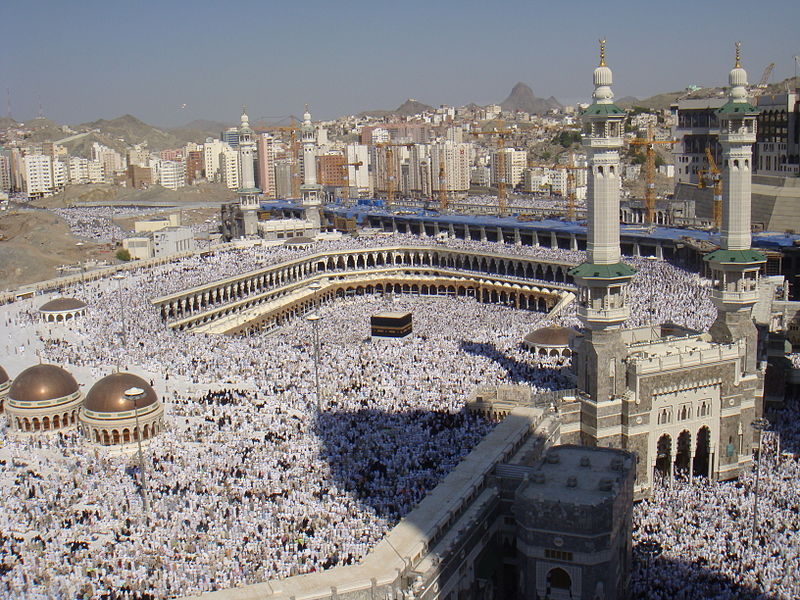 Alḥamdulillāh, the blessed Hajj season and ‘Īd al-Aḍḥa are quickly approaching. Remember the story of Prophet Ibrahim
Alḥamdulillāh, the blessed Hajj season and ‘Īd al-Aḍḥa are quickly approaching. Remember the story of Prophet Ibrahim  ? His willingness to sacrifice something so dear to him—his son—for Allāh
? His willingness to sacrifice something so dear to him—his son—for Allāh  is a great example all of us:
is a great example all of us: knew he must obey the command of Allāh—and his righteous son agreed. So the father and son resolved to carry out Allāh’s will. But, Allāh, the Most-Merciful, seeing their willingness, replaced Ismail with a ram, which was sacrificed instead.
knew he must obey the command of Allāh—and his righteous son agreed. So the father and son resolved to carry out Allāh’s will. But, Allāh, the Most-Merciful, seeing their willingness, replaced Ismail with a ram, which was sacrificed instead.



